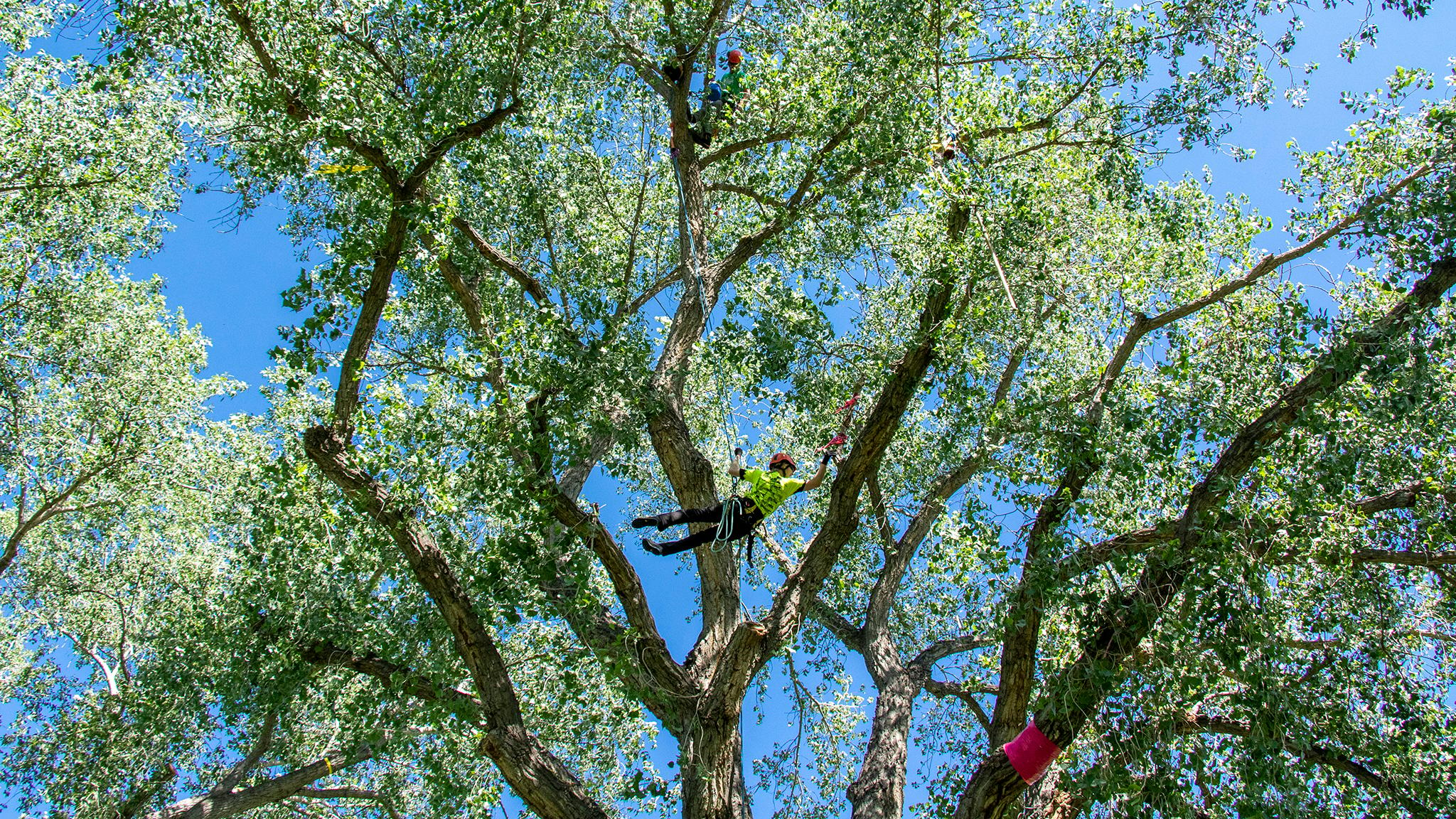Over the weekend, Front Range professional arborists gathered in Denver to climb trees.
Contestants and spectators crowded around five massive specimens in Crestmoor Park as experts raced up ropes and branches, rescued a dangling dummy and tossed lines high into the foliage. It was the regional Olympics for tree nerds, put on by the rocky mountain chapter of the International Society of Arboriculture.
Outside of the competition, each athlete has a job with a tree management company or owns their own small business. It's a trade that Denver is demanding more of as the city grows its canopy. Denver's Outdoor Downtown Plan, for instance, aims to plant and maintain 1,000 trees in the city's densest district over the next ten years.
Sara Davis, Denver's urban forestry manager and a former president of the local arboriculture chapter, said Denverites overwhelmingly asked for more trees during the lead-up to the downtown plan. It outranked free wifi and public bathrooms in their initial surveys.
But in tree work, as has happened in other industries, like construction, finding reliable employees can be difficult. A longtime emphasis on four-year college and tougher immigration policies mean there's not a whole lot of people willing to meet the city's growing need.
"We struggle with attracting talent," Davis said. "We see that the work that needs to be done is being delayed."
This, she said, is an issue of safety as much as it is one of meeting residents' desires. Sick or dead trees can cause serious damage, especially as storms and high winds sweep over the city. The last major storm event, she estimated, caused about $60,000 worth of damage.
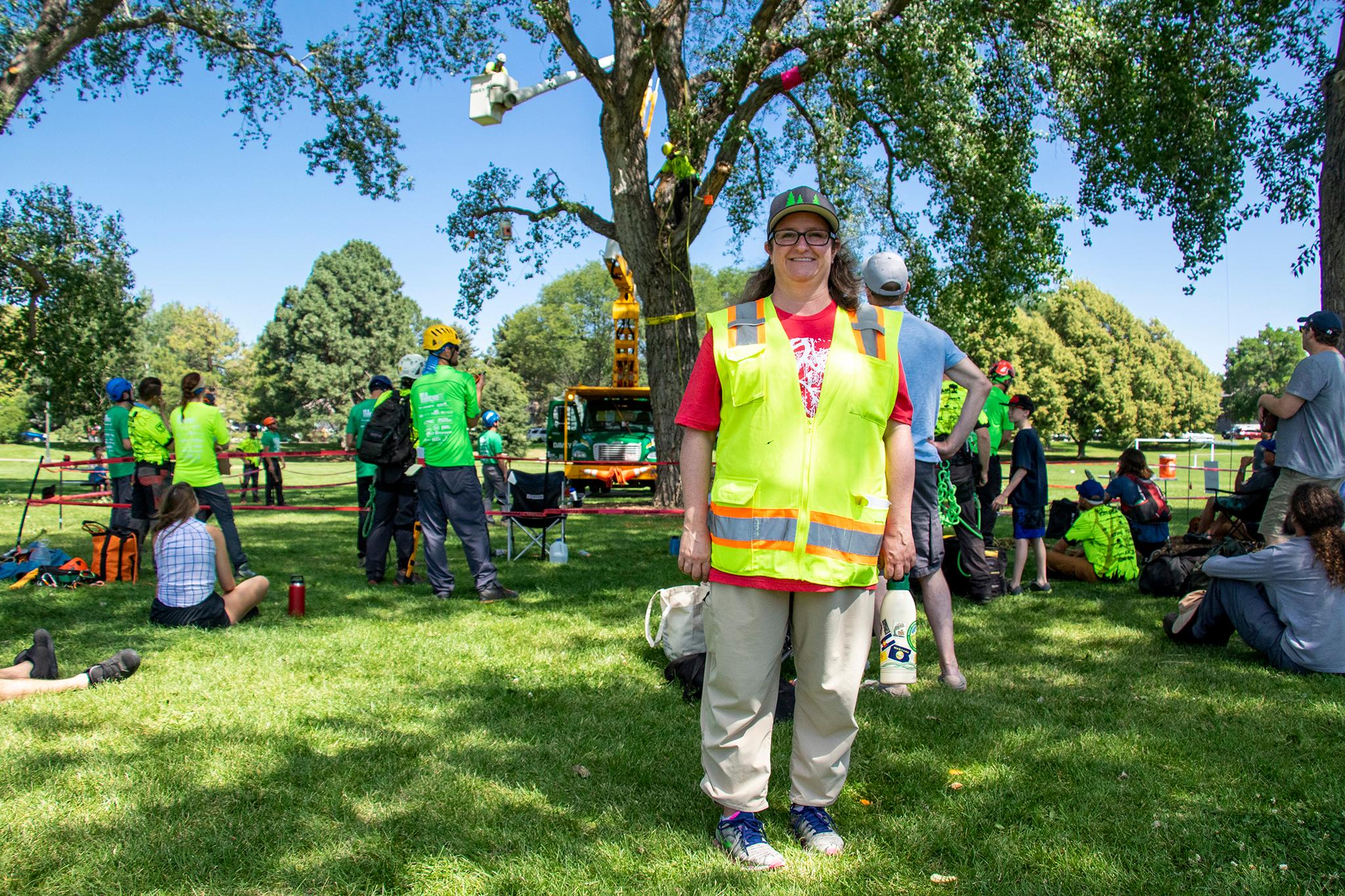
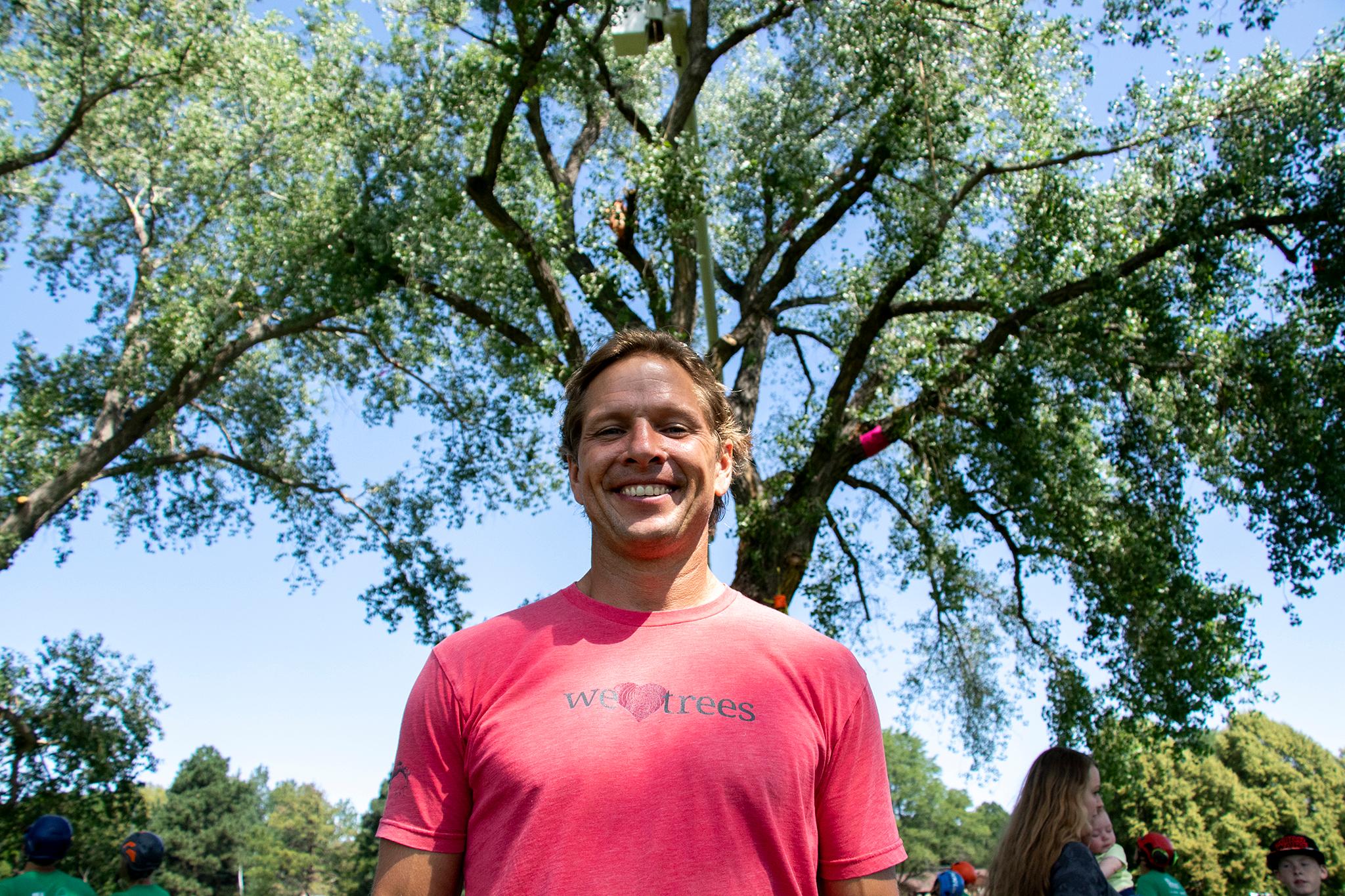
Josh Morin owns a tree management company in Boulder and has been working with other industry leaders to attract more workers into the field. Arborists were granted a big help in 2017 when the U.S. Department of Labor named the profession an official "skilled trade," which allows for apprenticeship programs united by nationwide standards. It's a way to draw high school graduates right into paid job training, which hopefully will add more people to the workforce.
The move was a long time coming since arborists, Morin said, have been around for over a century.
"It gives us a vehicle to connect with people who actually want to do this work," he said.
Students who have trouble sitting still or like working with their hands don't need to be resigned to four years at a university and a desk job. But entering any trade still has some stigma attached to it. Workforce advocates for arborist and construction jobs have said this for years, and they've tried to inform kids early on that the alternative can be just as rewarding as college -- and comes with much less debt.
Immigration policy, Morin added, also plays into his industry's shortages, which have worsened over time. Fifteen years ago, he said, H-2B visas for seasonal workers were seen as a "Band-Aid" solution. It was never ideal to hire short-term laborers for a job so dangerous, but the program still supplied enough people, until recently.
The H-2B program only allows for 66,000 workers to enter the country for seasonal jobs each year. Until a few years ago, returning workers did not count against that cap. But the legislation that allowed for that flexibility expired in 2016, and congress has yet to address it. The lapse meant that all kinds of businesses, from tree workers to flagstone quarriers, faced sudden uncertainty.
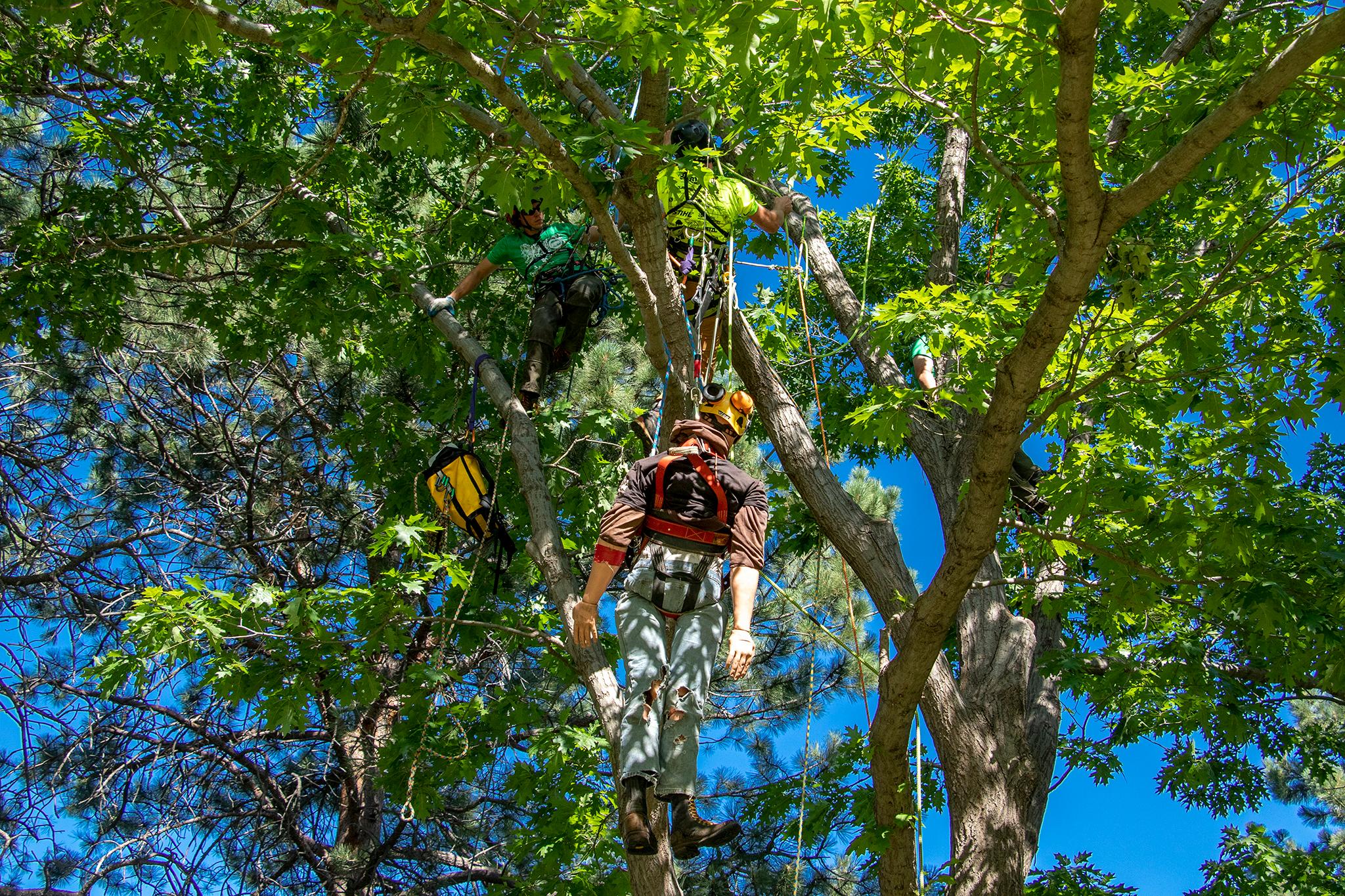
Axel Avila, one of this weekend's competitors, knows this issue well. He's from Mexico City and holds legal residency in the U.S. He's worked as a safety inspector and trainer for arborist operations across the country. More than half of tree workers in the nation are native Spanish-speakers, he said, and many work with false documents.
"A lot of people down in Mexico need a job, and they're going to do whatever it takes to come here and do it," he said. "The companies need people out there and they will keep hiring these people."
High demand for this work across the country is beckoning undocumented workers to employers who need their labor, and hirers are often willing to look the other way when employees arrive with suspect documents.
In May, President Trump announced he'd propose new immigration rules that would prioritize "high-skilled" people "such as scientists and engineers" for legal residency and eventual citizenship. Though the competition in Crestmoor Park was all about showing off specialized talent, Avila said he doubts the trade will be included if the president's new standards are enshrined into law.
On Friday, he was re-entering the country from Mexico when an immigration officer asked him what he does for a living. Avila told the agent that he's an arborist and then had to explain that it involves climbing trees. The fact that his job requires a honed skill set seemed to be lost on the officer, he said.
"Of course it's a highly skilled labor job," he said, but "we should probably start labeling what we do with a different terminology."
He thinks the industry as a whole needs to refine how it describes itself so authorities and kids graduating from high school see it as more than an entry-level profession.
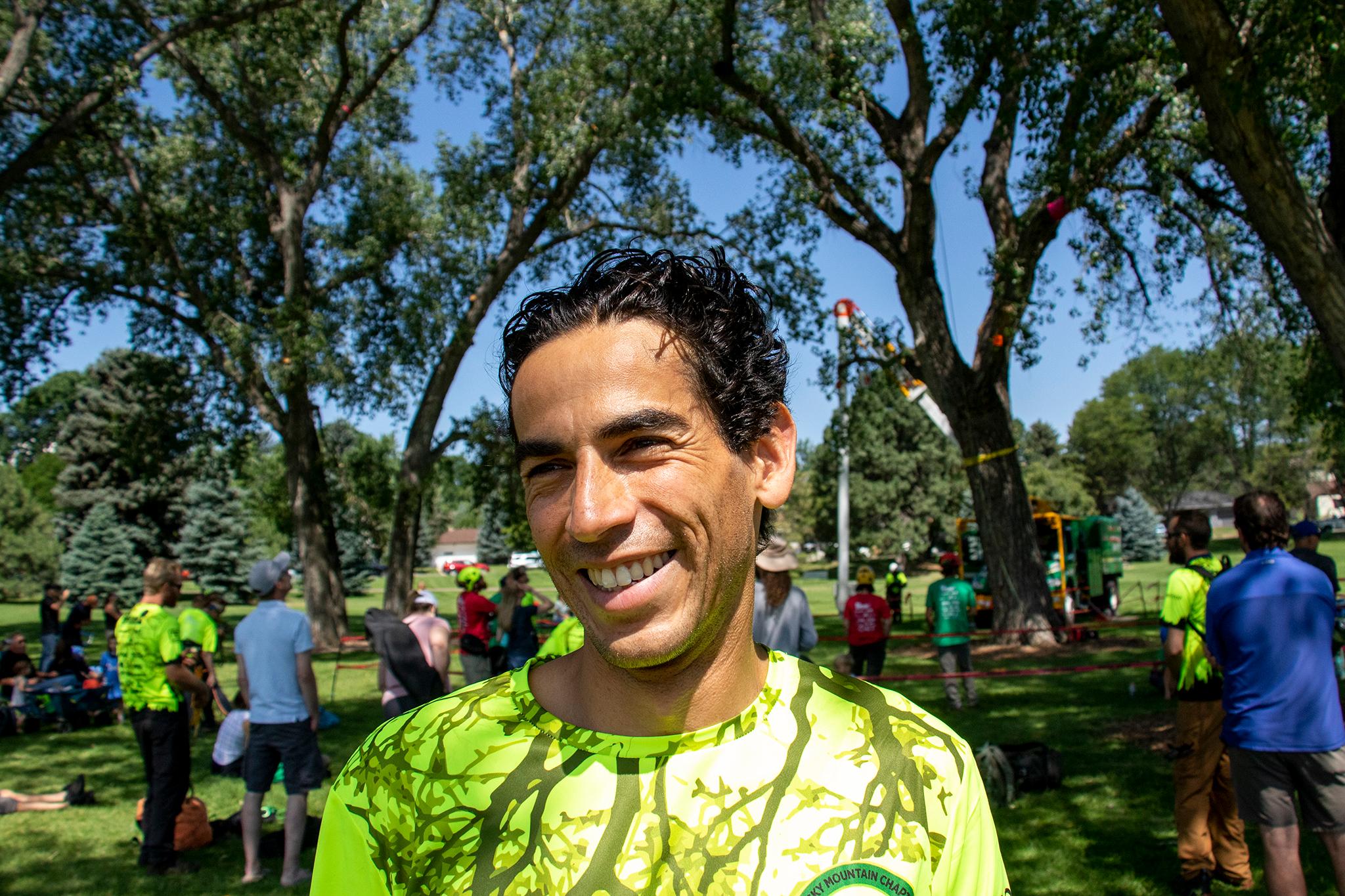
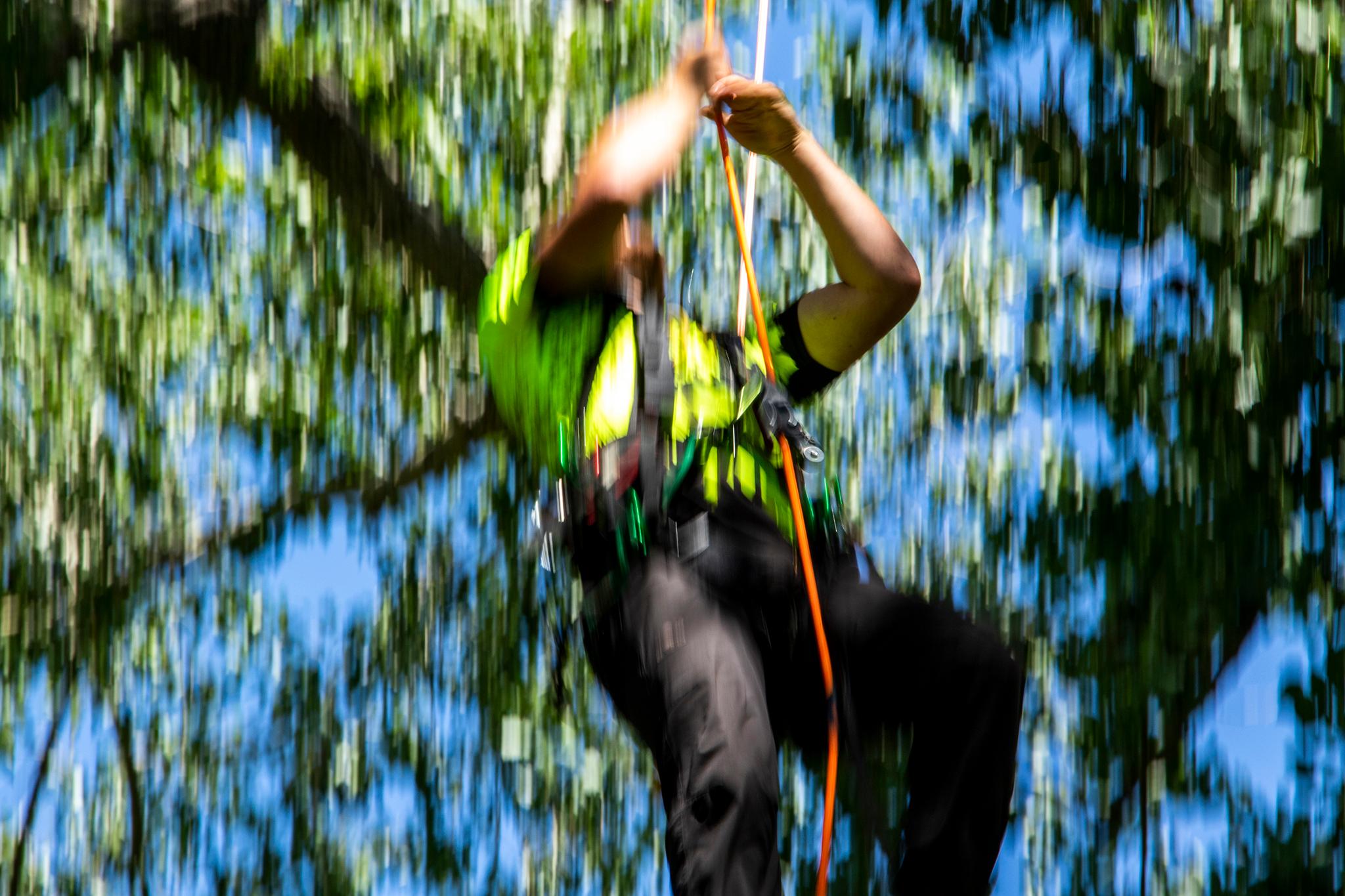
Morin said the industry's "tree geeks" are experts who see the world through a very specific lens.
"They go on vacation and they're looking at trees," he said. "It's so annoying to spouses."
He hopes American society, policy and education will begin to allow more people who get fired up about foliage to fill cities' growing needs.
"As a nation, we have to embrace diversity -- diversity of people and learning and orientations," he said. "Where do I get joy from? It's working with my hands."

